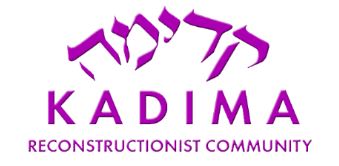So, how can I change?? How can I, how can anyone, make the changes necessary to elongate and enliven our days?
To consider this question, I went to how our tradition often frames reasons for doing mitzvot. But first, a quick word about the word mitzvah. Modern Liberal Judaism, following the lead of the Reform Movement, in which I grew up, has done a doozy on the word. “Mitzvah” does not, in fact, mean “good deed.” The word mitzvah means “obligation.” “Commandment.” The acts we need to do in order for everything to go well around us. Ben Oron famously called them, upon becoming bar mitzvah: “life pro-tips.” They are not “charitable acts” as the Reform definition might have us believe, but those things that must be done for our society to holistically work - for everyone. Ya know, justice.
Our tradition has much to say on “why do mitzvot” - ever since the earliest surviving texts of Medieval Judaism from Saadia Gaon, who lived in today’s Egypt, Palestine, and Iraq in the Abbasid Caliphate in the 10th century. Writing in Arabic as well as Hebrew, Saadia Gaon split up the mitzvot into two categories teaching that some fall into a category ‘of reason’ and others into a category ‘of revelation.’ He attempted to rationalize them all. Those he categorized as “of reason” he defined as acts that prevent harm of one’s self or one’s neighbor. Stretching, for the commandments he categorized as ‘of revelation’, though, he regularly reminded himself and the reader that humans simply cannot fully grasp G-d’s intent. So, we are left, perhaps, with “do what is required because it is good for us, or at least because God told us to.” And for some of us, this may be enough. It is black and white - follow the rules of justice because they are good for us and because they are rules for justice. If this is enough to make you act, I envy you to some extent.
Saadia Gaon’s categories map well with our torah reading this morning. Each commandment or set of commandments is concluded with “ani adonai eloheichem” or “ani adonai” in other words: “um, it’s me God telling you these things!” - reminding the reader this very simple reason to do any of them.
Now, over 800 years after Saadia Gaon’s reasoning, the Polish chasidic rebbe Yehudah Aryeh Leib Alter, known as the Sfat Emet, (or the Sfas Emes), pointed to 2 reasons of his liking for doing mitzvot: fear and love. Commenting on the verse we chant in these High Holy Day services: Hashiveinu adonai eleychah v’nashuvah, the Sfas Emes tells us that this verse from Lamentations teaches that there are 2 kinds of teshuvah: teshuvah from fear and teshuvah from love.
Fear, yira, shares a root with the Days of Awe - Yamim HaNora’im. This “nora’im” can certainly be translated as “awe” but it is also the word for “fear.” Picture something so momentous, so grand, that while we are totally humbled by it, we might also be intimidated, or truly fearful of it. This is the kind of “awe” that the High Holy Days could be - days of intimidation. Days of humility. Days of consequence. For some, this may be the right motivation to change one’s ways. There are dire consequences for your actions, so quit it. (Or, start doing it, as the case may be.) Perhaps this is also heard in the consistent reminder of “I am God” in the Torah reading: remember the almighty is asking this of us! But this sentiment is also heard in the cries of Greta Thunberg and the thousands of young people who have joined her call for a Climate Strike: “I don’t want your hope, I want you to panic. I want you to feel the fear I feel everyday. I want you to act. I want you to act as you would in a crisis. I want you to act as if the house is on fire, because it is.” While I can certainly be moved quickly to action out of such fear, I also know that sometimes I find it demobilizing, frozen by the fear.
It is the love, then, that I want to close with. I find myself a bit flustered when considering what it is to do teshuva from love, and then I remember my kids. That love be my guide as I seek to do what is right, to actually change in the ways I still need to. And I am glad that we read not just the torah, but the haftarah as well. I find a loving God, even in the chastisements, in the words of Isaiah, for our reading today closed with the call to return to Shabbat...to consider its delight. To turn away from “profaning the precious hours,” as Isaiah calls for, not because something terrible will happen if we don’t, but because something amazing can happen if we do. Delight. Oneg. The realization of the brokenness repaired, the removal of oppression, of scorn, and of speaking with malice. Justice, healing, and glory.
Whatever it is that spurs us to action these days, I find the words of Rabbi David Teutsch, former president of the Reconstructionist Rabbinical College and my teacher, fitting. In a note in the machzor about Yom Kippur, he wrote: “This is preparation for the challenge beginning tomorrow.”
Let us find what moves us, let us move, and let us find the ability to say of the year ahead that we did not indeed “profane the precious hours” we have been gifted today. Let us say we were up for the challenge. Gmar chatimah tovah. An easy and meaningful fast.

 RSS Feed
RSS Feed